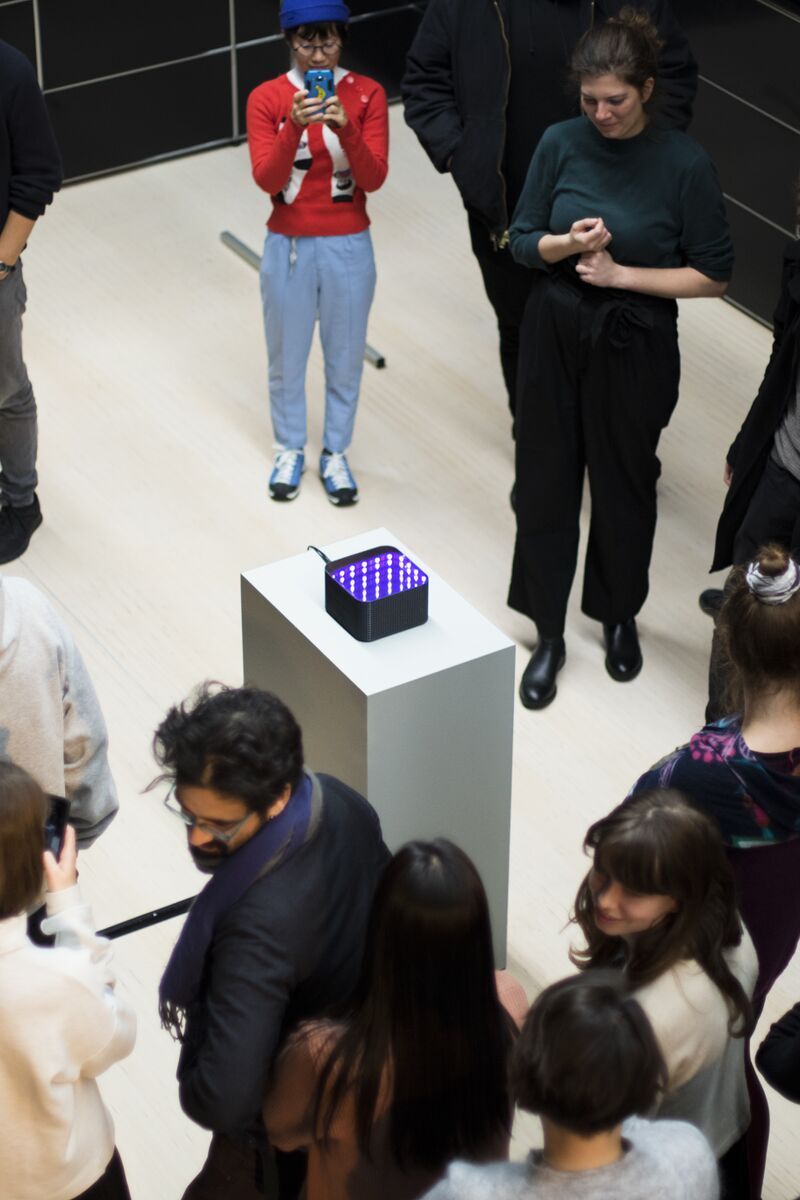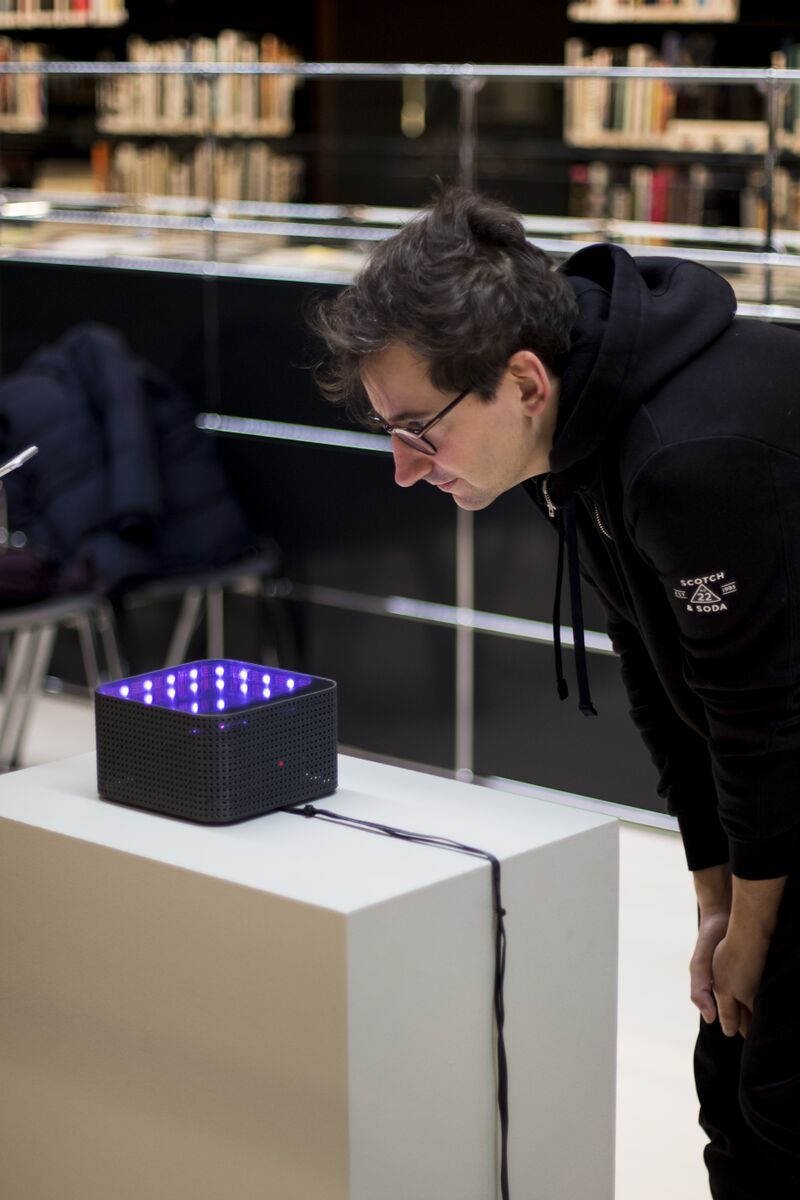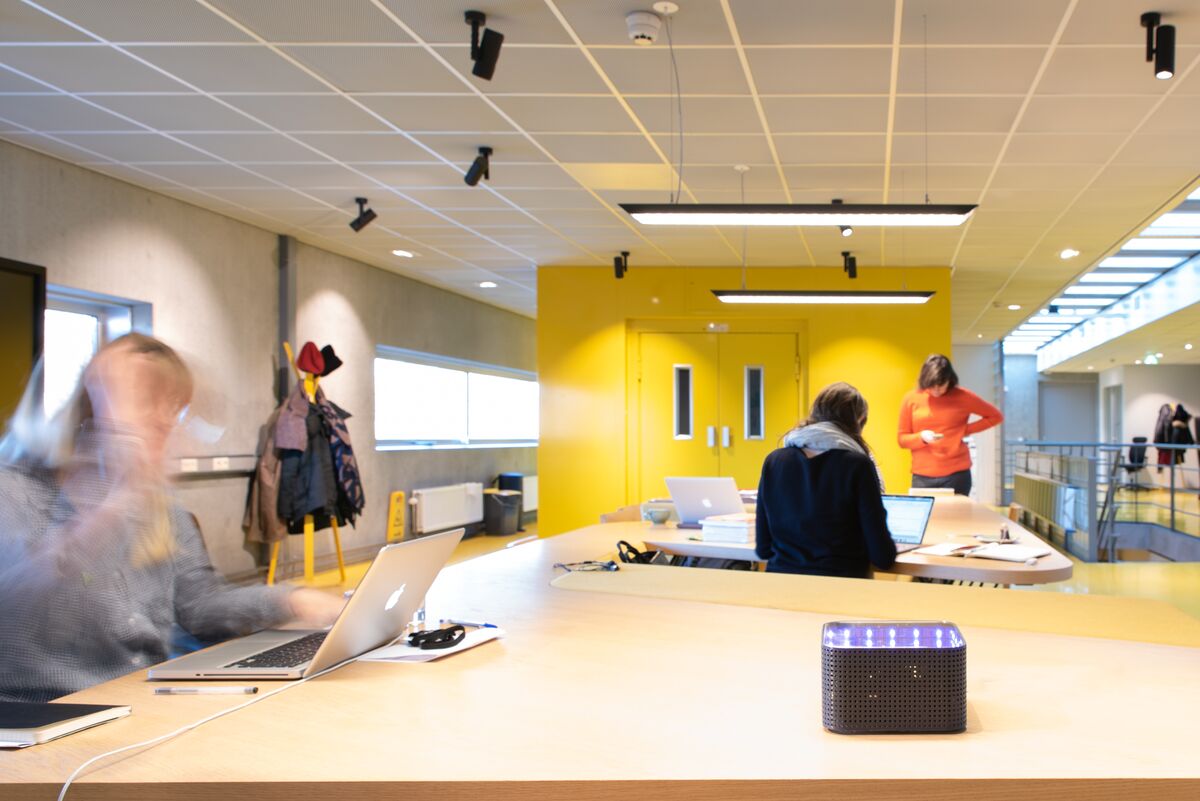Start up, Burn Out, Life Hacks (Publication)
Ten Theses on Life Hacks
Life Hacks are small improvisational interventions to the immediate environment; spontaneous actions that aim to improve or adapt materials to specific needs. They are diasporic, shared within communities both on- and offline in ever-increasing processes of self-optimisation. Understanding Life Hacks in the context of an advanced capitalist society raises the question of the ambiguity of a system in which the entrepreneurial routine of the self is internalized to perform an ever-working life. In actuality, Life Hacks bring about the possibility of reappropriating everyday life in a creative and practical response, managing precarity and complexity.
This publication consists of ten theses, the first of which is a selection of criteria that allow us to test whether something is a Life Hack or not. The remaining theses present extended arguments supported by examples, on how to identify specific features of Life Hacks, in which environment (and space) they exist and what kind of culture they foster.
Ten Theses on Life Hacks Full PDF

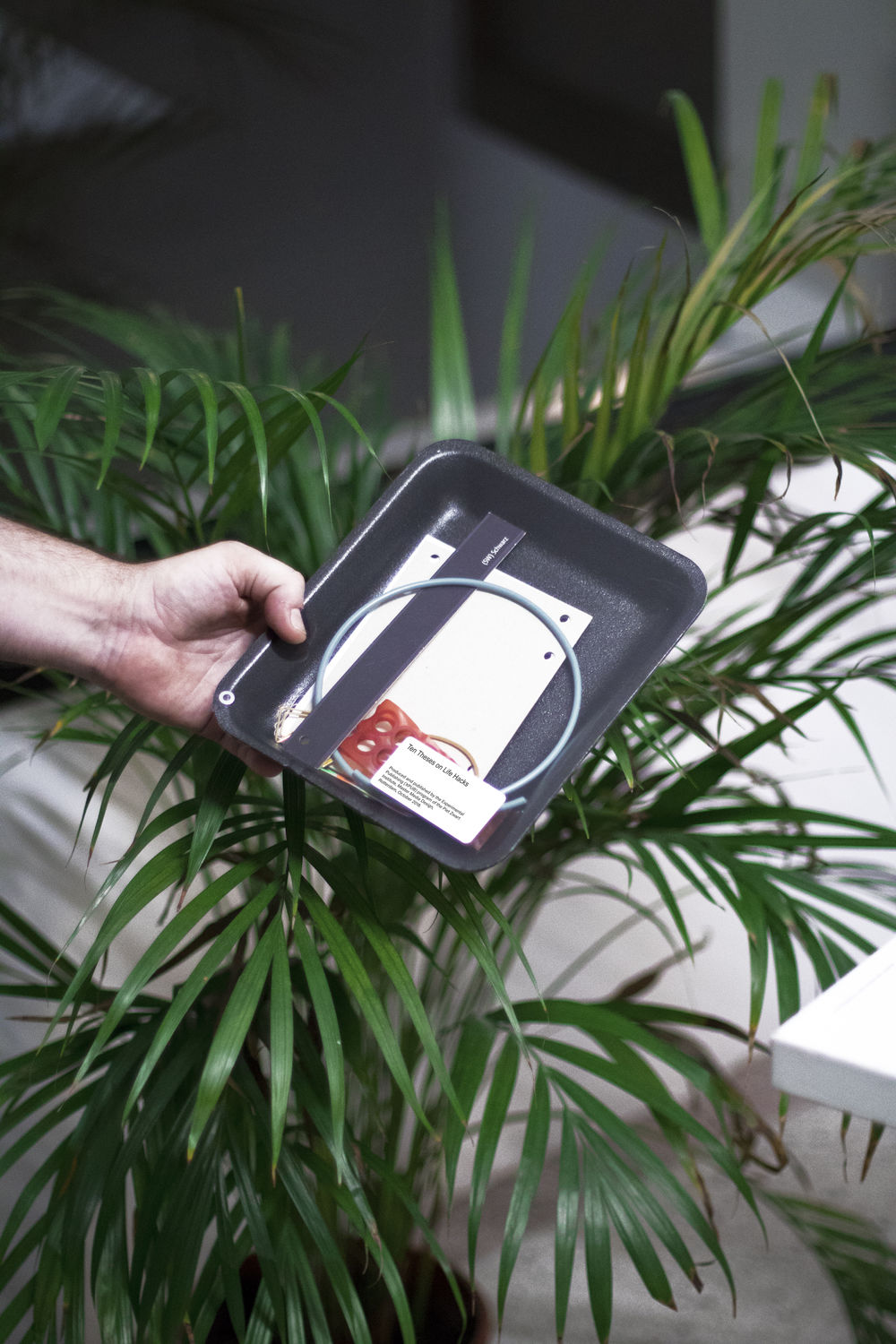
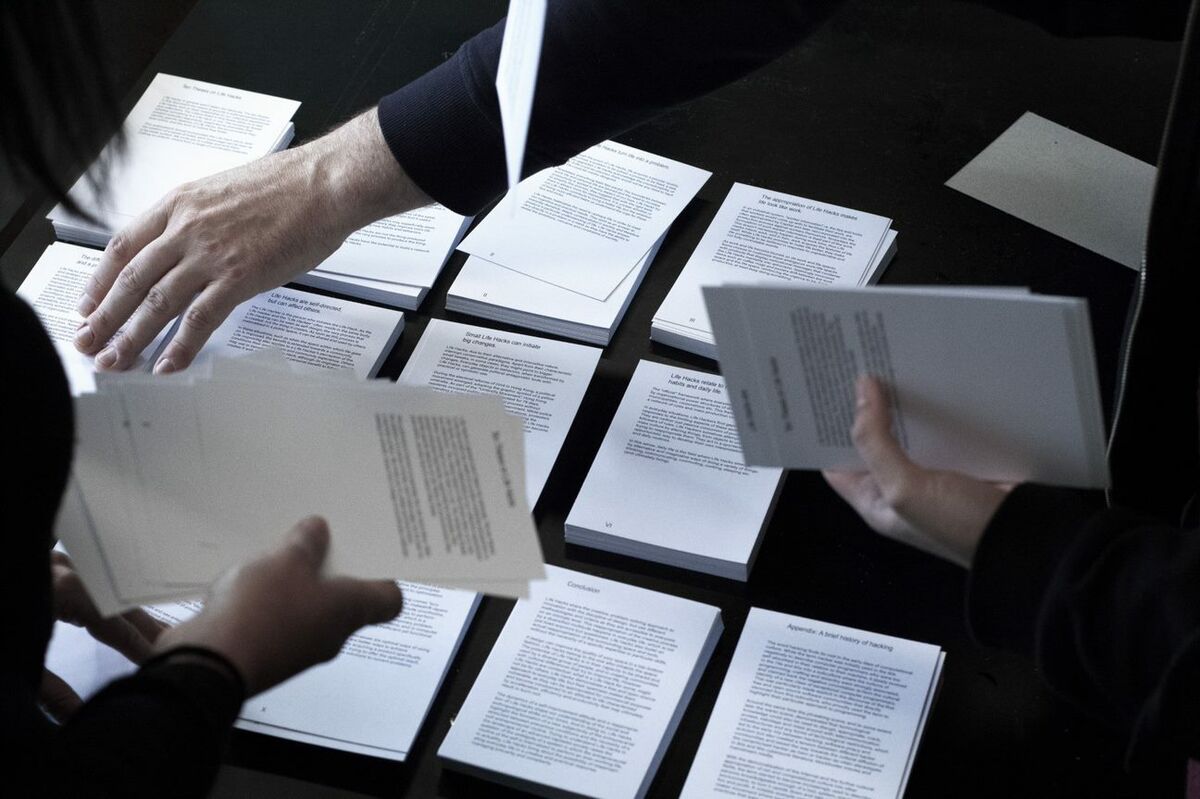
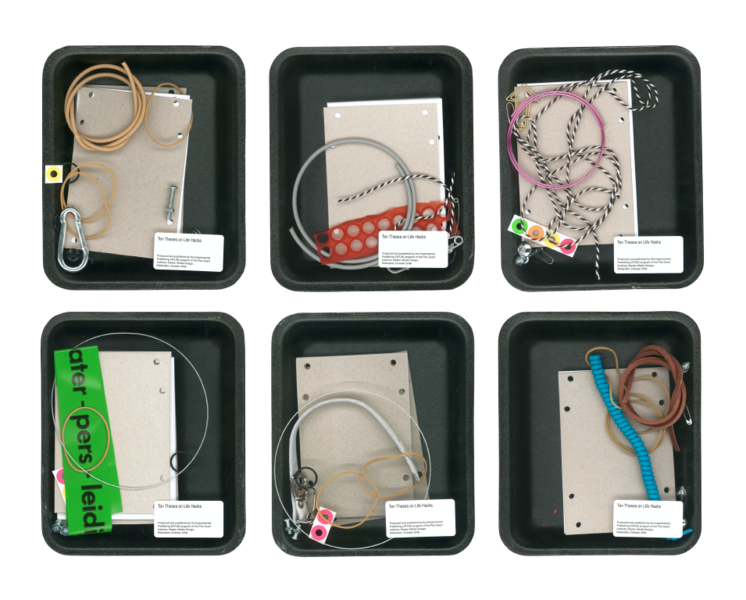
Iris
(^^) Take your time to reflect on this: Are you doing what you truly want to do? (^^) iš thiš Þ@rt øf yøur jøb ðéšcriÞtiøπ? (^^) If happiness is a currency, how rich do you think you are? (^^) ¶ FIX WOBBLY OFFICE FURNITURE BY USING OLD CDS TO AVOID WOBBLES AND PROTECT THE CARPET. THEY ALSO MAKE GREAT COASTERS.¶
A shady corporation is trying to take control of a fluid, chaotic global market. Workers surrender themselves to a seductive new device called Iris, which purports to enlighten them and unleash the real power of the entrepreneurial self. Iris is designed to help full-time, part-time and zero-time employees cope with the complexity of modern life, divulging secrets of the precarious worker, of autonomy and maximum efficiency through a new magic formula contained in the meaning of Life Hacks. But… anonymous cyber-pirates are exploiting the device to rouse a cry of rebellion against this oppressive society of self-management. Discover the paradox buried deep within Iris, where autonomy leads to subjugation, and subjugation appears as freedom.
Iris takes the appearance of a manufactured product; a compact 3D-printed shell that contains a Raspberry Pi and two speakers, and at the top of the device, an infinity mirror with an LED strip and a camera. When it detects movement via the camera it starts to speak, and the LEDs, connected to the audio levels of the output, start to glow at a different intensity in relation to the strength of the audio signal. When the device is active, the infinity mirror produces a combination of an endless light corridor and a faint reflection of oneself.
Iris is a physical device, ostensibly, an “artificial intelligence”, whose aim is to increase productivity. It is installed in work environments where workers can easily interact with it. However, the device is inhabited by three different personalities: Corporate Guru, Pirate Signal and Announcer. The interactions with and conflicts between these three personalities force the user to adopt a reflexive and critical attitude toward the device. The user triggers the performance and is placed in an ambiguous position; doubtful if the emphasis is on productivity or happiness.
The Corporate Guru invites the user to repeat positive affirmations and invite self-inquiry into their thoughts as part of a meditative session. Its soothing voice is interrupted unexpectedly by the raspy, computerised whisper of a Pirate Signal, who responds with snarky asides that cast doubt on the Guru’s instructions and the very process of taking part in such sessions. Whether the Pirate Signal is part of the corporate manufacturer’s design or not is not clear; it could easily be coming from an outside infiltrator (e.g. a hacktivist) whose aim is to subvert the process. The third voice is of an Announcer, who, every hour, between 9:00 and 17:00 (apart from a lunch break at 13:00), describes a work-related problem and a Life Hack which addresses it, reminding workers of their autonomy and suggesting practical ways to improve their everyday lives in small, improvisational actions.

